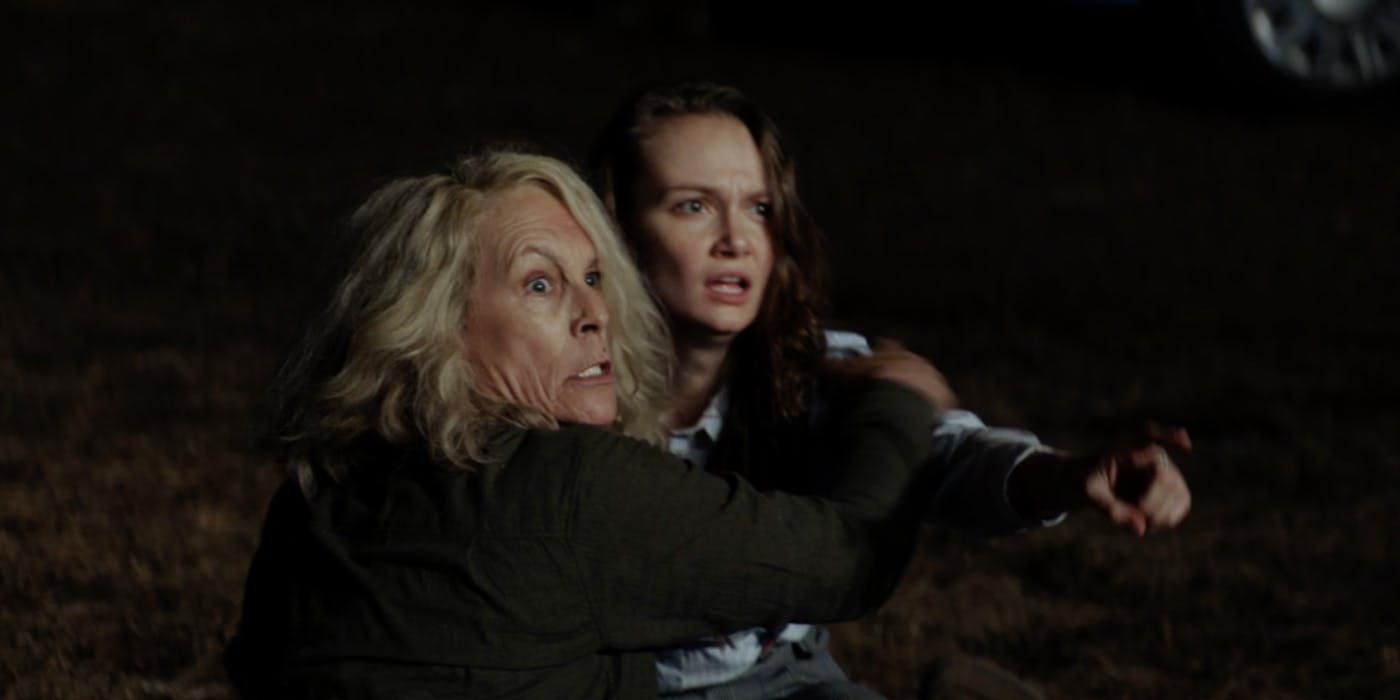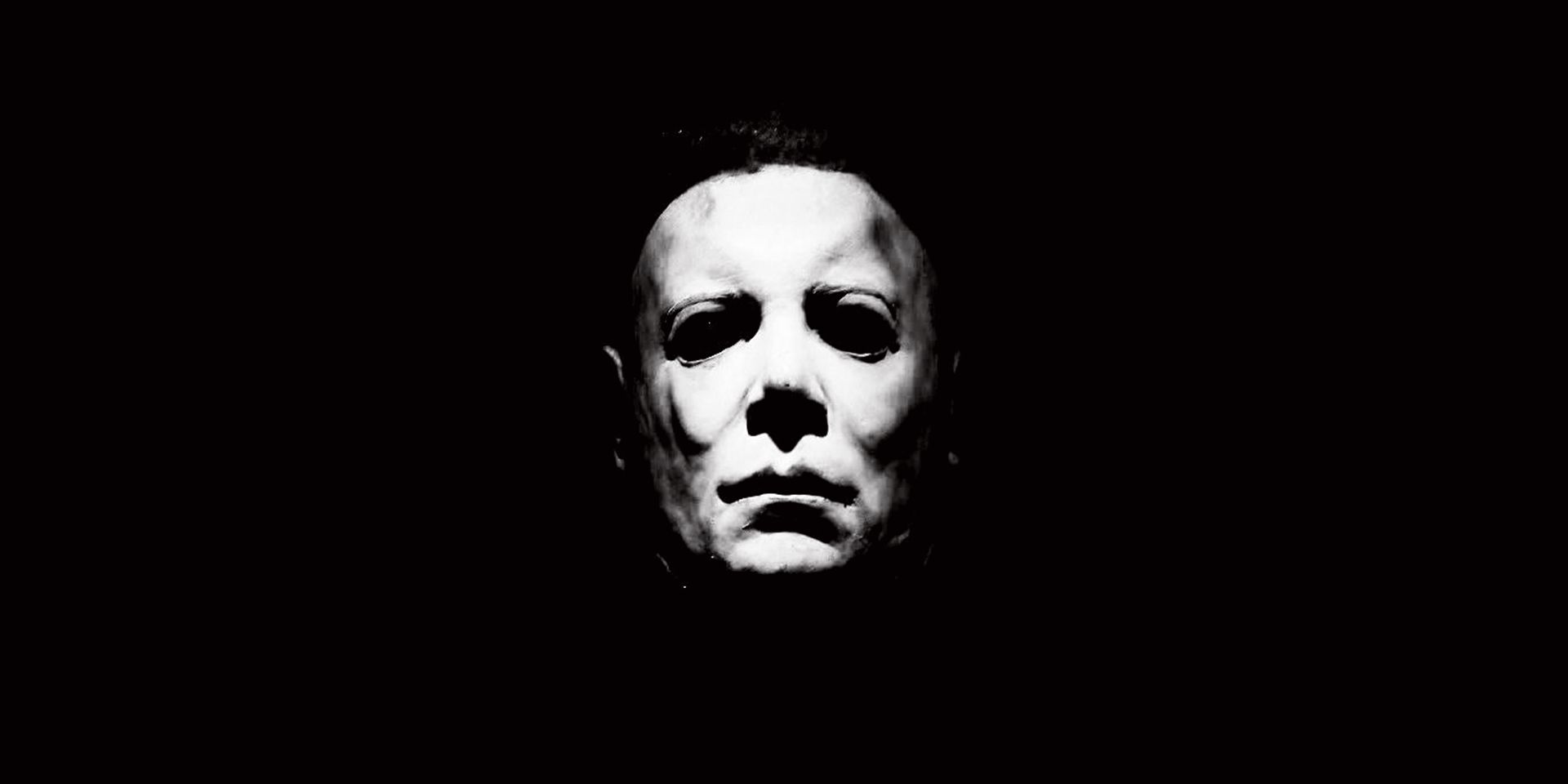SPOILER WARNING: The following article contains major spoilers for Halloween, in theaters now.
When the new Halloween was announced as a sequel to John Carpenter's 1978 slasher flick, director David Gordon Green made it clear he was going back to basics. Along with writers Danny McBride and Jeff Fradley, they felt the franchise lost its essence in the six sequels that followed Carpenter's original. They wanted to reset the course, also erasing Rob Zombie's reboot in 2007 and its follow-up two years later.
RELATED: The New Halloween’s Most Gruesome Kills
The creative team wanted to instead use this film as a vehicle to continue the battle between Myers and Jamie Lee Curtis' Laurie Strode after the original's ending hinted the killer escaped. However, despite picking up their rivalry straight from that point, the greatest strengths of this new chapter are actually drawn from the sequels it tries to ignore.
The Family Aspect
Carpenter's original movie had Myers stalking Laurie, a total stranger, only for Rick Rosenthal's Halloween II in 1981 to retcon her as his sister. Their feud continued with Michael hunting Laurie's daughter, Jamie, in 1988's Halloween 4: The Return of Michael Myers, 1989's Halloween 5: The Revenge of Michael Myers and 1995's Halloween: The Curse of Michael Myers. This was done to add an emotive, personal connection, explaining why Myers was drawn to Laurie.
RELATED: How Halloween Sets Up a Slasher-Filled Sequel
Here, Green decides to use the theme of family as well, only this time he focuses on Laurie's daughter, Karen (Judy Greer), and granddaughter Allyson (Andi Matichak). While the concept of family felt forced into the old movies, Gordon finesses it into this script instead of just using it as plot tool to give Myers agency. The purpose of the familial bond is now stronger, dealing with Laurie's PTSD and how it affected her as a parent, and how trauma trickles down to kids like a curse.
Laurie's training of Judy feels organic and resonates deeply, even if the daughter didn't understand it at first. This direction then allows Allyson to witnesses the strength of the women in her life, effectively shaping her as the new heroine in the series -- something the old films failed at. The Strodes' special connection here feels way more real and relatable, and is more about them and not the killer. This leaves the director free to paint him as a murderer without rhyme or reason, like Carpenter originally intended.
The Supernatural Element
The other sequel that influences Green's recalibration -- because, honestly, 1998's Halloween: H20 and 2002's Halloween: Resurrection were superficial additions just to keep pace with franchises like Scream and I Know What You Did Last Summer -- is the third chapter in the franchise, 1982's Halloween III: Season of the Witch. This was envisioned as a breakaway from the Myers saga, so that each subsequent Halloween film could tell a standalone story moving forward. It wasn't a financial hit, though, and the franchise returned to its slasher roots thereafter.
RELATED: Halloween’s Ending Was Shot to Make You Question Yourself
However, its supernatural core subtly influences the new film. While Season of the Witch's threads of witchcraft and curses aren't explicitly incorporated, Green and company borrow an air of mysticism from it, especially when it comes to Myers' mask. When Dr. Sartain (Haluk Bilginer), a psychiatrist-turned-Myers fanboy, dons it, he seems possessed by it. When it was presented to Myers in a prison courtyard, we see inmates and guard dogs going crazy, hinting it's something more sinister than just facial wear.
Other supernatural teases occur when Myers is resurrected after Sheriff Frank Hawkins (Will Patton) called his death after running him over. There are further hints that Myers' touch could possess people and give them a killer mentality (which Jamie actually experienced in the fourth movie), and that the killer even has psychic abilities. Of course, these are merely deployed to build up Myers' mystique, but they're never really disproved either. That said, seeing as Myers appears to be impervious to bullets, knives and life-ending explosions, these myths work well together to create an otherworldly flair, painting him as more monster than man.
Now in theaters, the latest Halloween is directed by David Gordon Green from a script written by Green, Danny McBride and Jeff Fradley. The film stars Jamie Lee Curtis, Judy Greer and Andi Matichak, with Nick Castle and James Jude Courtney sharing the role of masked killer Michael Myers. The film is executive produced and scored by original filmmaker John Carpenter.



